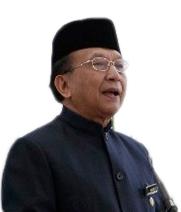

IT’s hard to trust the prime minister, no matter if public approval for him has risen following a slew of government handouts. It’s not just because the seasoned journalist in me has seen more than my fair share of untrustworthy politicians. Trust, as we often hear and know to be true, has to be earned.
Prime Minister Datuk Seri Najib Razak, however, seems to think that it is enough to get people to trust him just by making announcements that are geared towards making people feel that the Barisan Nasional (BN) government is listening and sensitive to the rakyat’s woes. Najib’s latest feel-good announcement was that the government would work far more closely with non-governmental organisations (NGOs) through “smart partnerships”.
Why should we trust that Najib means every word he says? And what will it take for our premier to really earn the trust of an increasingly critical and engaged citizenry?
Too little, too late
On 4 March 2012, Najib urged NGOs to work with the government “for the people’s well-being” after officiating at a 1Malaysia Social Welfare Programme in Bukit Jalil. He also stressed that it was important for the government to reach out to these grassroots organisations instead of waiting for the NGOs to approach the government.
At face value, and if one hasn’t lived in Malaysia beyond a week, here is a prime minister who seems to genuinely want to work with NGOs to make Malaysia a better place. Yet, those of us who have lived in Malaysia longer than a week or who follow news on Malaysia know that words are cheap. And they are even cheaper when one holds public office and has the public platform to magnify messages of sweet nothings.
Why are Najib‘s words cheap and, I would even say, reflective of a lazy and ineffective leadership? Because the evidence in hand is that the BN government has no interest in engaging NGOs to make Malaysia a fairer and more just democracy. If it did, BN would have engaged Bersih 2.0 in ensuring that the extensive electoral reforms that Malaysia needs to ensure free and fair elections are implemented.
Instead, what did the Najib administration do? It galvanised all its state apparatus to villify, threaten and arrest the many Malaysians who called for a fairer and more transparent electoral system. Indeed, under Najib, the crackdown was far more brutal than what Bersih experienced in 2007 under then Prime Minister Datuk Seri Abdullah Ahmad Badawi.





Dixie Dean says
Trust ????? Does he and his ruling coalition even know the meaning of the word?
Ratna says
Brilliant writing and strong arguments Jacq Surin! Kudos to you for highlighting critical social issues [and] that the PM must take responsibility and walk the talk!!
Tony says
It is good to see open and honest articles like this one shooting focus on Najib’s actions and motives. It is clear that he is all talk and no walk. I hope the people see this gimmickry at the ballots…
Debbie YM Loh says
The lack of support for NGOs can also be seen in how donations to many NGOs with good causes are not tax-deductible, making fundraising difficult for them.
Kong Kek Kuat says
@ Debbie YM Loh
That´s because those NGOs have got incompetent advisers.
Try thinking about professional advisors as an essential part of administering any serious, long-term organisation. That way you won´t think too highly of yourself, and won´t go get a cheap ‘Malaysia Boleh’ adviser.
JW Tan says
No one should trust politicians. They are interested in power, and their actions are geared to achieve it, and keep it. While such people may be eminently capable leaders and governors, there have to be mechanisms that hold them to account. Hence the extremely important roles for the judiciary, the free media and the rakyat’s civic consciousness. Without these spotlights or prior evidence, the default assumption ought to be that politicians lie, cheat and steal with impunity.
As Ronald Reagan said, trust but verify. It was ever thus.
KL Loo says
Never trusted him from day one. So far his words and deeds bear out my belief.
Gopal Raj Kumar says
The attack on the prime minister is perhaps a sign of desperation. When you can’t play the ball, play the man.
Such a question as “Can we trust you Prime Minister?” is of itself a statement couched in the form of a question. And why should it be?
Why not question his policies and compare it with those of the Opposition, a raft of losers and a policy-free zone?